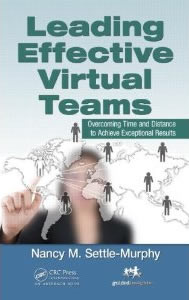|
- Eric and his dozen plus colleagues in the hardware and supply chain teams continue to work remotely with some exceptions, such as work that must be done in the lab. “We’ve proven how productive we are working from home. We spend our days mostly on calls with suppliers. Unless, for example, we have a supplier coming in to meet with us, the prevailing view is we would lose productivity if we were to commute into the office on a regular basis. There isn’t, not yet anyway, a compelling enough reason for everyone to return to the office on regular days to work, apart from purpose-driven events like supplier visits, assimilation of new hires, or collaboration-centered events.”
- When it comes to building relationships or sharing knowledge, coming into the office makes sense. “When we ask people to come in, it’s usually for an event of some sort, whether it’s a team sharing or learning activity, a social gathering, a supplier visit, or an all-company event. It doesn’t make sense for people to come in if they’re doing work they could be doing from home. And we don’t want people commuting only to find a ghost town.”
- Eric’s company has established guidelines at a corporate level, and at each EVP level, but it’s ultimately up to each department head and their team members to determine when and where they’ll work. “Some employees consider themselves as ‘hybrid/office,’ where they come in 2-3 days/week on a regular basis and have an assigned workspace. Those who classify themselves as ‘hybrid/remote’ can reserve a workspace ahead of time on the days they come in. This makes it easy for people to come in when needed.”
- New hires deserve special attention to make the assimilation process easier and ramp-up time faster, which can be tricky in a hybrid world. Eric offered a couple of insightful tips. “I hired Alex, a new team member back in January, and have invited him to many virtual meetings he may not normally be part of. This way, he can learn about our work and culture and make some valuable connections. Of late I’ve been advocating for what you might call ‘Alex’ days where colleagues come into the office so new folks can spend time learning in person.”
- Although team connections and communications are as strong as ever, it’s the casual conversations with colleagues and others outside of Eric’s organization that are lost when working remotely. “My manager does a great job of communicating. What gets lost, however, are interactions with colleagues and other leaders who I used to see in passing. I miss getting those perspectives from conversations outside of the mainstream, which have become rare and hard to create in a remote/hybrid world. I suspect that a lot of valuable information has been lost as a result, that compounds over time.”
- The bottom line: Eric’s team members and colleagues strongly believe they’re as or more productive than ever, and have many ways of connecting and collaborating, both from afar and when together in the office.
While there may be good reasons for employees to occasionally come into in the office, the rule of thumb for this organization is to work wherever they feel they can be most productive on any given day. For most people, this means usually working from home, unless a new team member has recently come on board, an important supplier is in town, or people want a chance to re-establish connections with people they used to interact with regularly prior to COVID. This is what I’m seeing as a “best practice” trend for many senior managers I am interviewing.
Links
When Meeting Face-to- Face is no Longer an Option – downloadable white paper by Guided Insights
Meeting Face-to-Face or Remotely: Evaluating the Options – Downloadable checklist from Guided Insights
Creating and Adopting Norms for Your Virtual Team – Quick List (guidedinsights.com) – Downloadable example and template from Guided Insights
20 Questions to Help Hybrid Teams Reduce Anxiety, Start Off Strong in 2022 – Guided Insights – Still applies for the start of 2023!
What’s the Optimal Workplace for Your Organization? (hbr.org)
The Worst of Both Worlds: Zooming From the Office – The New York Times (nytimes.com)
Related Workshops from Guided Insights
|



